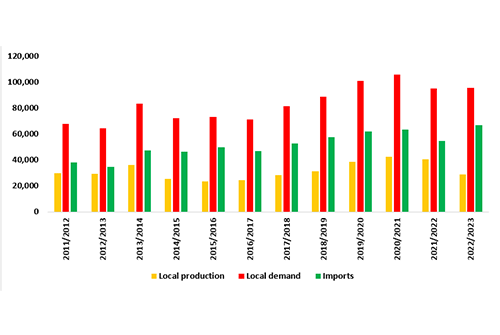The High Economic Intelligence (HEI) has proposed investments in higher-yielding horticultural seeds, water availability and basic training for farmers.
This, HEI stated, should increase substantially to boost local horticulture production.
HEI is an independent research entity specialising in economic and financial services.
In its July bulletin, HEI stated there is room for building necessary efficiencies for increased production of local products to satisfy local demand.
“For the country to improve on the production of horticultural products and become competitive in international markets and also take advantage of the African Continental Free Trade Area, we recommend providing affordable credit, subsidised ploughing, weeding services, and government support (fertiliser subsidies) to farmers to enable them to up-scale their production,” the report reads.
It is no secret that the Namibian economy is heavily reliant on imported horticultural products. This is due to local production being insufficient to meet local demand.
Furthermore, the recommendations include motivating a significant number of producers to enter the horticulture industry, which could increase production and lead to domestic food security.
During 2022/2023, Namibia imported 66 824 tonnes of horticultural products valued at N$524 million.
During the same period, local demand for horticultural products amounted to 95 734 tonnes, of which only 30% was produced locally, while the remaining 70% was imported.


